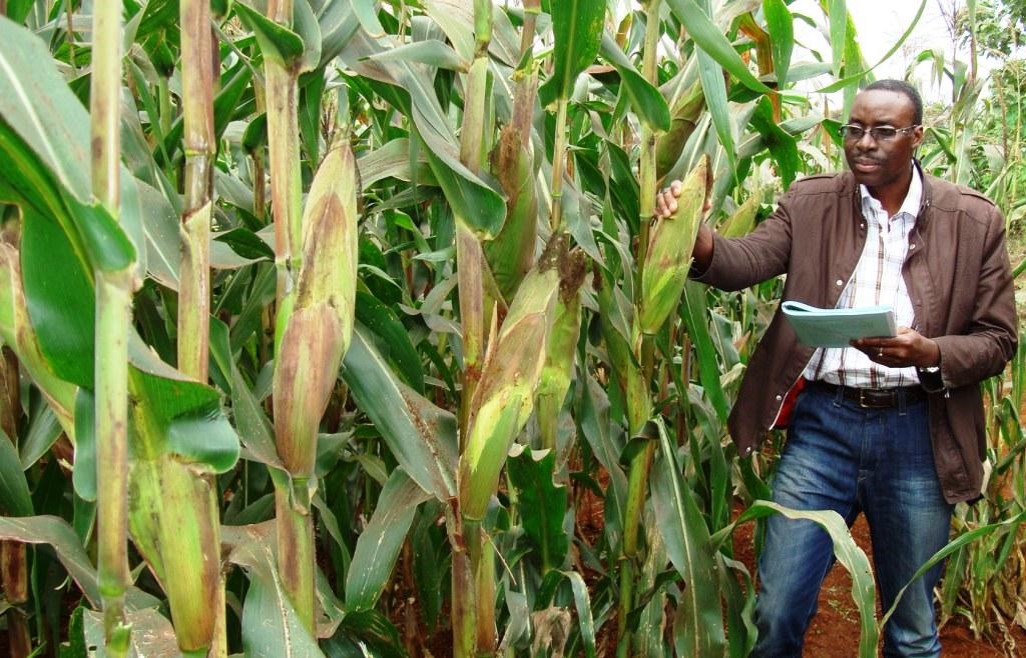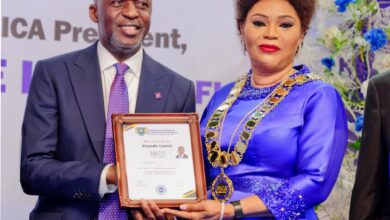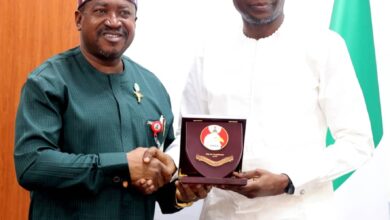Environmental Activists Carpet Federal Government for Approving GMO TELA Maize
... Insist it’s Nigeria’s Wrong Idea on Food Security

By Edu Abade
Environmental activists have faulted the Federal Government decision to openly approve open cultivation and commercial release of the TELA Maize, which is said to be a transgenic insect-resistant and drought-tolerant variety along with other “high-yielding crop varieties.”
This is coming at a time when Mexico from where the variety of maize originated has stopped the cultivation of genetically engineered corn to preserve local and more nutritious varieties despite severe pressures from vested interests.
Minister of Innovation, Science and Technology, Uche Nnaji, who spoke at a media briefing in Abuja on Thursday, January 11, 2024, said the commercial release of the crop was a remarkable step at enhancing agricultural productivity to ensure food sufficiency in Nigeria.
He also stated that the move would strengthen Nigeria’s position in the global agricultural landscape, foster economic stability and open new avenues for trade and export, claim the benefits of the release were far-reaching, promise increased crop yields, enhanced resilience to pests and diseases, reduced environmental impact and improved nutritional content.
While commending the Federal Government’s intention to address food insufficiency in Nigeria, the Health of Mother Earth Foundation (HOMEF) expressed disappointment at the release of the genetically modified varieties.
HOMEF noted that there is no evidence of a risk assessment conducted before the release of the TELA Maize on either the website of the National Biosafety Management Agency (the agency responsible for regulating the use of GMOs) or the Biosafety Clearing House of the United Nations Convention on Biodiversity where parties are expected to upload updates on their decisions and use of GMOs and LMOs.
Executive Director of HOMEF, Nnimmo Bassey, said: “It is unacceptable that the country is exposing its citizens to products of risky technologies in the name of food sufficiency, without adequate, independent and (or) long-term assessment on their impacts on human and environmental health. There are many challenges associated with genetic modification crops that we cannot deny.
“So far, GMOs have been linked to cancers, diseases, allergies and all sorts of health challenges due to environmental implications because of their dependency on toxic pesticides and the destruction of biodiversity and nutritional diversity. We are also concerned that there is no way to label or inform our farmers that they are planting GMO maize. To deny Nigerians the right of choice is highly objectionable and wicked.
It is expedient that the government should conduct independent long-term feeding tests and environmental/biodiversity assessments before any GM crop is approved for use and not merely testing to confirm productivity or performance.”
Bassey charged the Federal Government to understand the difficulties of recalling genetically modified living organisms and to quickly withdraw the TELA Maize.
The TELA Maize was released along with 22 other new varieties said to be aimed at achieving food sufficiency in Nigeria. The crop varieties were released at the National Centre for Genetic Resources and Biotechnology (NACGRAB) in Ibadan, Oyo State, during the 33rd meeting of National Committee on Naming, Registration and Release of Crop Varieties, Livestock Breeds/Fisheries.
HOMEF’s Director of Programmes and Project Lead for Hunger Politics, Joyce Brown, said: “We don’t need GMOs to feed our population. Our farmers have selected and preserved seeds, crops and animal varieties for centuries.
“They have kept a stock of varieties that both provide food and meet our medicinal and other needs. They kept the norms that preserved biodiversity. Introducing open cultivation and commercial release of the TELA Maize constitute danger to the lives and livelihood of Nigerian farmers.
“What is important is to enhance the health of our soils-which ensures their resilience to environmental stressors; building biodiversity instead of encouraging monocultures, which helps pests to thrive and support farmers with needed access to credits, land, infrastructure and access to markets.”
She explained that of the 23 new crop varieties released, 12 are varieties of the genetically modified TELA Maize, adding: “In other words, the country is celebrating the flooding of our agriculture system with product of a risky technology that promotes monoculture and does not necessarily lead to higher productivity than local varieties.”
She argued that the NACGRAB did not state if the other varieties are also products of genetic engineering, maintaining that Nigerians deserve adequate and accurate information on what is going in their food chain.
“It is, however, ironic that a centre that prides itself in its commitment to the conservation of the rich genetic resources of the nation is the same in charge of approving the release of genetically modified varieties-with serious potential to contaminate our local varieties in an irreversible manner,” she added.
A farmer and Director, Network of Women and Youth in Agriculture, Lovelyn Ejim, urged farmers to build a united front and reject the approval, adding: “It is important for farmers to also speak in a united voice. Allowing GMOs to take over our food system is like going back to slavery. We should not allow the big guys to use unfounded terms and unrealistic promises to derail us.”
HOMEF demands that the Federal Government through the NACGRAB and NBMA to show Nigerians the facts and evidence to support the claim that the crop variety has reduced environmental impact and improved nutrition content, wondering: “What are the environmental impacts which are claimed to be “reduced”?











